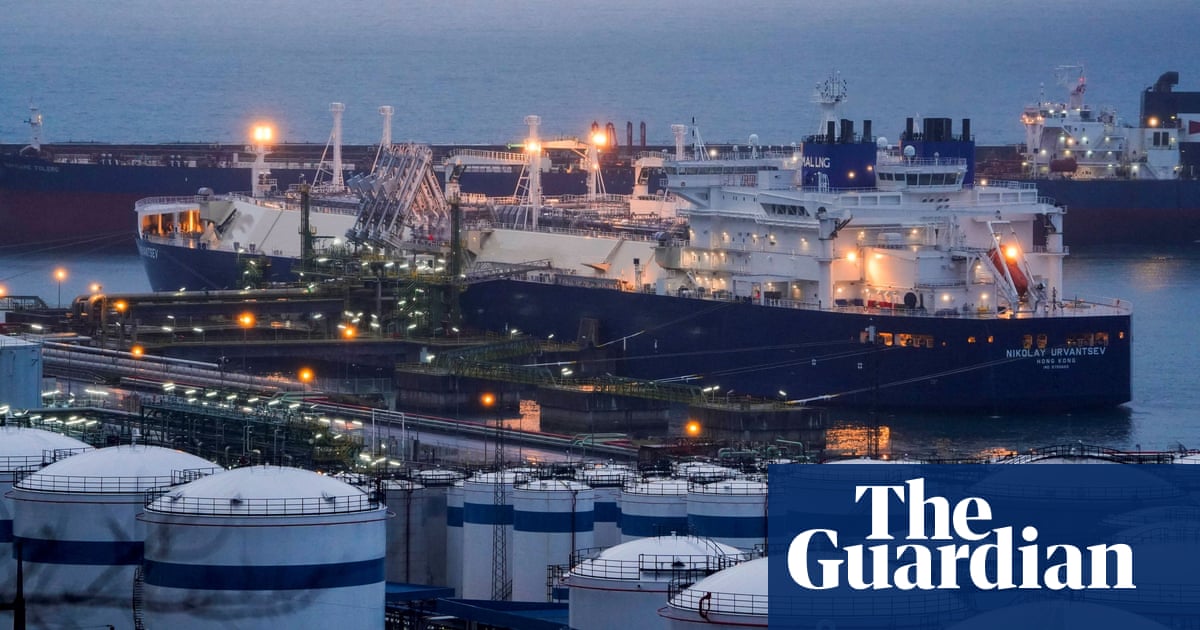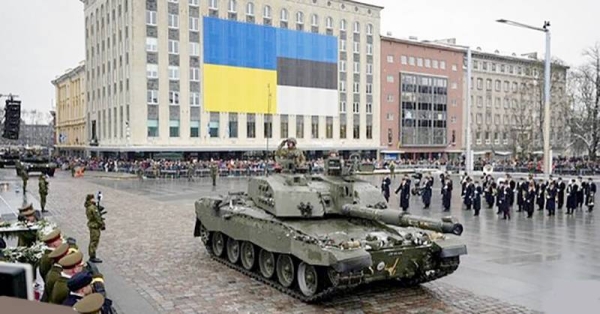
EU imports of Russian liquified natural gas (LNG) have increased by 40% since the invasion of Ukraine despite efforts to cut down supplies.
Member states have bought more than half of Russia’s LNG on the market in the first seven months of this year, according to analysis of data by Kpler, which tracks marine and tanker traffic.
Spain and Belgium, which acts as major gateways for LNG supplies to the bloc, have emerged as the second and third-biggest customers of Russian LNG respectively after China.
“EU countries now buy the majority of Russia’s supply, propping up one of the Kremlin’s most important sources of revenue,” said Jonathan Noronha-Gant, a senior fossil fuel campaigner at the anti-corruption group Global Witness, which did the analysis.
Europe’s pipeline gas flows from Russia have fallen to historic lows since the invasion last year as countries wean themselves off it, but to make up for the shortfall shipments of cooled LNG from all over the world, including Russia, have surged and are not subject to any EU sanctions.
EU countries bought 22m cubic metres of Russian LNG between January and July 2023, compared with 15m during the same period in 2021, Global Witness said.
“Buying Russian gas has the same impact as buying Russian oil. Both fund the war in Ukraine, and every euro means more bloodshed. While European countries decry the war, they’re putting money into Putin’s pockets,” Noronha-Gant said. “These countries should align their actions with their words by banning the trade of Russian LNG that is fuelling both the war and the climate crisis.”
Spain and Belgian said the numbers did not reflect national purchasing but the fact that their ports were major gateways for the rest of the continent.
European leaders spent 2022 reducing their reliance on Russian energy and trying to build alternative supplies after the country’s president, Vladimir Putin, closed off the gas taps to Europe.
The EU imposed sanctions on imports of Russian oil and coal after Moscow’s forces invaded Ukraine in February last year. It also banned Russian entities from storing gas in the bloc and prohibited most new investments in the Russian energy sector.
Fears of winter blackouts led to people in many countries being asked to turn down their heating thermostats by 1C and night-time illumination of public buildings across the bloc, including the Eiffel Tower, was stopped. In some cities street lights were turned off after midnight to save energy.
Germany said in January that it no longer depended on Russia for any of its energy having secured supplies from elsewhere around the globe, including the US and Norway.
Spain said the current situation made clear the need for unified, coherent action when it came to reducing the EU’s dependence on Russian gas. It also said the increase in imports was probably the result of traders storing Russian LNG in Spanish and Belgian facilities.
“Europe needs to act jointly, as it has until now, and avoid substituting old dependencies for other, equally dangerous ones,” said a source in Spain’s EU presidency.
The Belgian ports of Zeebrugge and Antwerp act as gateways to 18 markets, including France and Germany, with most of the LNG exported to neighbours. According to government data only 2.8% of gas consumed in Belgium is from Russia.
During the 2022 energy crisis, it exported the full capacity of its gas to neighbours.
It is understood that the Belgian government considered legal action to stop Russian supplies, but it was felt that trade would simply disappear to neighbours with six gas storage terminals within a day’s travel of the two Belgian ports. It was decided that EU-wide sanctions would be the most effective way of limiting Russian supplies.
The Spanish source said limiting imports of LNG from Russia was only possible if there was prior European agreement.
“Until such an agreement is in place, we’ve asked operators not to renew their LNG purchase contracts with Russia,” the source said. “The big traditional operators have told the Spanish that they have not increased nor renewed their agreements.
“If that is the case, it’s most likely that what’s happening is that other traders have decided that it’s convenient for them to store in the EU – mainly in Belgium and Spain – because of the regasification and port unloading infrastructures.”
The EU called on member states and private companies in March to stop buying from Russia. “I think we can and should get rid of Russian gas completely as soon as possible,” the bloc’s energy commissioner, Kadri Simson, said.












